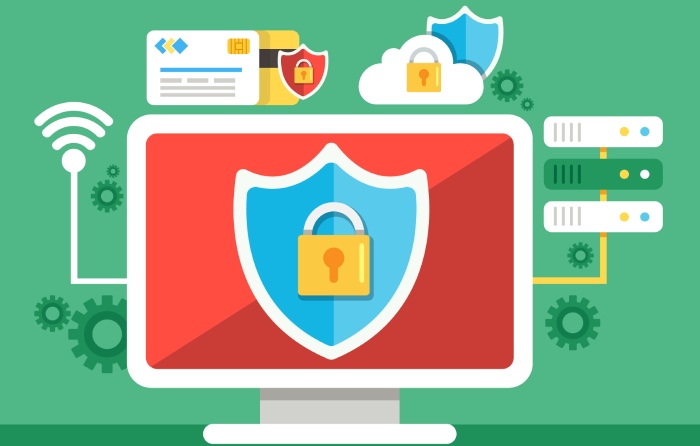It’s quite evident by now that the Pandemic has changed the lives of individuals, proprietors, small businesses, and large corporations in unexpected ways. And it is no different for Managed Service Providers, having to deal not only with clients that are making serious efforts transitioning to the new norm but their ways of rendering services remotely. Collaboration tools used by clients and employees, continuous security monitoring (CSM), video surveillance, vulnerability risk assessment, and intrusion management are some services MSPs have been handling.
Since the Pandemic started and lockdown imposed in most places worldwide, MSPs have been most needed and valued, and businesses depend on them more than ever. Though it was challenging for some service providers due to a lack of experienced engineers and human resources, it was also the opportunity for growth if they could maintain stability in the services they provided.
What Can MSPs Do To Stay More Relevant In 2021
Helping businesses adapt Automated Cloud Managed Services
Even before the Pandemic, organizations were already moving towards a digital transformation in a big way. But because cloud automation is sophisticated, it warrants specialized tools and professional expertise. Managed Service Providers can take this opportunity to equip businesses with tools at their disposal to deliver their services to end customers efficiently. Setting up automated cloud managed services requires a lot of work, but one can perform complex tasks quickly and effectively once it is set up. Managed service offerings can take a step further and provide Cloud Orchestration technologies as a service, which could benefit large enterprises with a vast client base.
Securing business platforms with a robust and secure network and infrastructure
With almost all organizations embracing cloud technologies, Cybersecurity has never been more critical than it is today. The Managed Security Service Providers’ (MSSPs’) responsibility is to manage and ensure that the cloud environment is secure. Managed Cloud Compliance is of utmost importance to businesses as per their respective countries’ rules and regulations. Any vulnerability in the cloud infrastructure can lead to a security breach similar to Yahoo, Dropbox, and Facebook incidents. Organizations need assurances that their platforms are secure places for both employees and clients. For employees working from home, an advanced threat protection system is vital for data security. Implementing fraud detection and prevention tools to stop spear-phishing attacks combined with general awareness and training in safe practices for end users can go a long way in securing businesses and personal information.
MSPs must offer IoT managed services
IoT has been widely discussed since 2015. Cisco estimates an IoE (Internet of Everything) value at the stake of $14.4 trillion by 2022. According to IoT Analytics, the number of active devices is expected to grow to 22 billion by 2025. The number of IoT devices By 2022 is set to surpass Non-IoT devices. Several MSPs have already sensed the opportunity and have started providing IoT services in some form. IoT in healthcare is on the rise, and the industry may need specialized platforms that monitor intelligent devices. IoT in businesses that operate the machinery of varying sizes using sensors may require managed services. Though IoT is relatively new, MSPs need to be aware of its rapid increase in adoption from individuals to large enterprises to make it a lucrative business in the next year or two.
How Can MSPs And MSSPs Survive A Pandemic-like Situation
It has not been easy for MSPs during the Pandemic. Many have lost clients for various reasons. Smaller enterprises faced financial crunches that compelled them to abandon MSPs, while others were looking for tools that smaller MSPs could not offer. The following are the lessons an MSP must learn from the Pandemic.
- Have a diverse set of clients: MSPs that catered to industries such as travel, tourism, and automobile were hit hard while others that offered their services to industries such as healthcare, food & beverages, and e-commerce thrived. Having a diverse client base ensures that MSP partner program can sail through during such times as the Pandemic, scarred but victorious.
- Be scalable and flexible: Many service providers lost out on opportunities because they lacked scalability. The sudden call for cloud-based services and infrastructure and the security measures that go along with them was just not possible for some service providers to offer. For example, MSPs that provided on-site services were directly affected due to lockdowns and travel restrictions. Those that already had remote tools or cloud infrastructure to cater to their clients’ needs were in a better position to adapt and were, therefore, able to stay afloat.
- Have a diverse skill set: Many MSPs, usually the larger ones, have diverse expertise and skill sets and have thus managed to assist their clients into transitioning to a work-from-home model. Providing training and guidance to their clients ensured that both parties got through rough times. Providing proper support and walking the extra mile did pay off. MSPs were able to retain their clients who were satisfied with their level of services.
- Providing Cloud Security: As stated, MSPs that provided advanced security solutions were better equipped than those who did not. The work-from-home model automatically forced employees to communicate using emails, video and chat platforms, or document sharing applications. It left them vulnerable to spam, phishing threats, or zero-day attacks if there was no proper security, which in this case, was the responsibility of the MSP. Those who did provide a strict security level protected their clients’ businesses and assets from malware and data theft in real-time. It was a win-win situation.
Final Words
For MSPs to survive, businesses have to endure. To achieve that, MSPs need to diversify, supporting as many emerging technologies as possible. With the Pandemic and the remote working options, MSSPs need to provide the much-needed security for organizations to communicate and have a fluid workflow using automated cloud infrastructure. Excellent and reliable customer service is at the heart of any efficient service provider. Poor support can cause losses to a business due to slow response time, and inadequate security can cost an enterprise its assets and reputation. MSPs can guide their clients to adopt new technology that enhances their workflow and performance.


